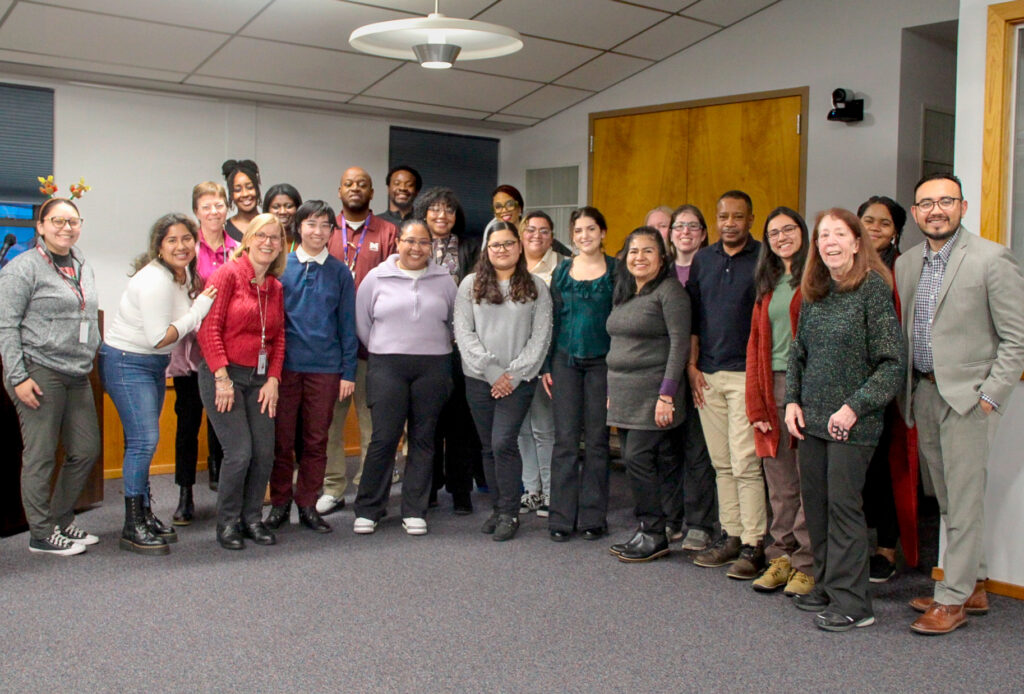Elizabeth “Liz” Park was working as a child life specialist at a hospital right after earning her undergraduate degree in child development at Florida State University when she came to a realization.
She loved helping children have fun and feel safe before a procedure or operation, but noticed that the families ‒ mothers, fathers and siblings ‒ also needed the same assistance to get through difficult times.
One master’s degree in marriage and family therapy at the University of Maryland and a doctoral degree in family services at the University of Delaware later, Park found herself the new director of Greenbelt CARES. The organization, created to encourage good behaviors and family management skills, is dedicated to looking for new ways to promote well-being among members of the Greenbelt community.
“My focus was always on, ‘How can I work in a community and help that community stay healthy?’” Park said. “Rather than working in private practice and just seeing clients, I really wanted to have a community impact.”
Park joined CARES and assumed the role of director almost 20 years ago in 2003. She is a licensed marriage and family therapist, which she noted helps her identify and create special programs to help every Greenbelt resident.
In her many years as director of the community-based program, Park has spearheaded numerous plans of action to help enhance the well-being of members of the Greenbelt community. Some projects have helped Greenbelters with renter and homeowner expenses, while others provide food assistance ‒ like the monthly produce distribution held at the Community Center and Springhill Lake Recreation Center that is free for Greenbelt residents.
CARES saw an increased community turnout at food and diaper distributions directly after Covid started. Those high numbers have remained four years later.
These areas of need are identified by Park and her team when engaging the community. She said that hearing from Greenbelters about their needs is how CARES caters to different demands from residents. The hands-on approach utilized by Park and her team of community outreach coordinators drives CARES to create and fund more helpful projects for Greenbelt.
“What I’m most proud of is how we’ve been able to grow what the city can do for the citizens and really try to see what their needs are,” Park said. “We really have tried to grow as we see a need in the community.”
One of those areas of need was the necessity for bilingual programs for Spanish-speaking residents, as Spanish is spoken in over 12 percent of homes in Greenbelt, according to the U.S. Census data. So Park sought to provide programs to assist Greenbelters whose primary language is Spanish. This initiative has helped expand CARES’ full-time staff and create projects for many more Greenbelt residents.
CARES recently hired two full-time bilingual counselors to “help serve people whose first language is Spanish,” according to Park. English for Speakers of Other Languages (ESOL), General Education Development (GED) and resumé-building classes are now being offered.
Katherine Farzin, a full-time bilingual community outreach coordinator with CARES, said these programs cater to everyone in the community, and attendance at these events is growing.
“ESOL classes are growing, the need for resumé help is growing,” Farzin said. “I’m hoping that the city council … sees how big the need is to kind of help tailor and employ more bilingual staff, because it’s growing.”
CARES, through Park’s guidance, has created numerous opportunities that have benefited those who live in Greenbelt. Rental assistance programs and an increased effort to support people from bilingual backgrounds have provided resources to help people with different needs.
With support for multiple bilingual and other programs from both the community and city council, Park said the next step for CARES is to look into mental health support for residents of bilingual households. She hopes to offer assistance to anyone who needs it and wants to continue seeing CARES expand.
“Since Covid, a lot more people know about us because we were able to do the rental assistance, the education scholarships, workforce development scholarships,” Park said. “We were really able to help a lot of people and reach a lot more people than we were before.”
Matthew Neus is a student at the University of Maryland Philip Merrill College of Journalism interning with the Greenbelt News Review.


